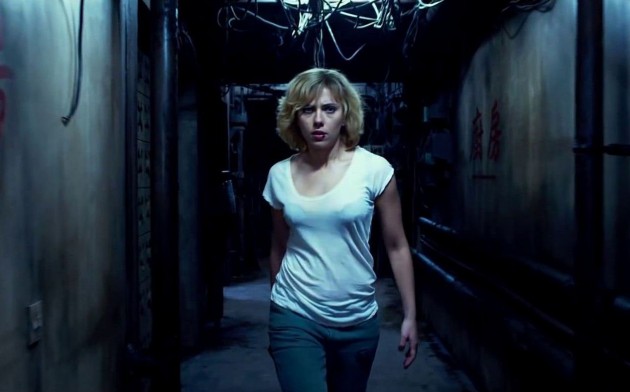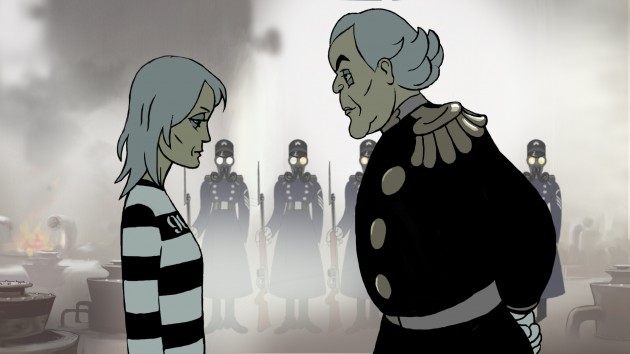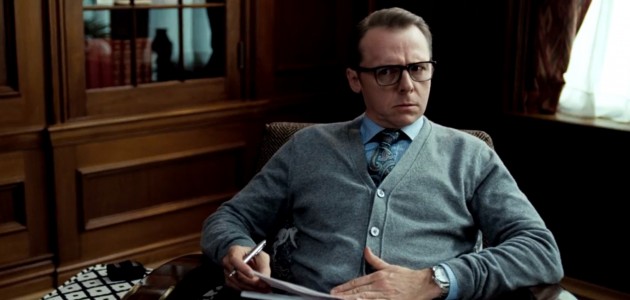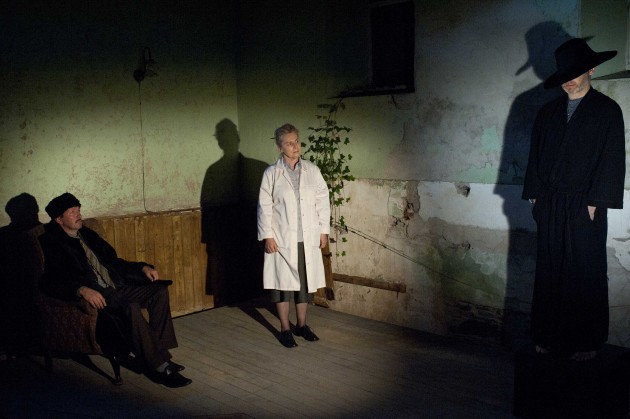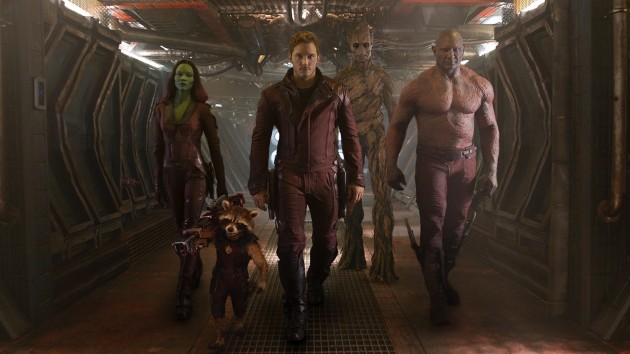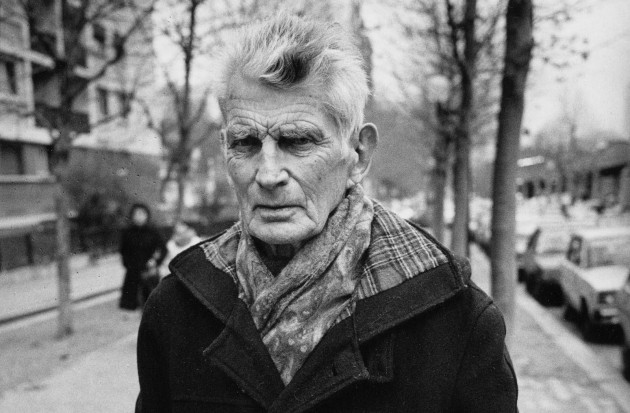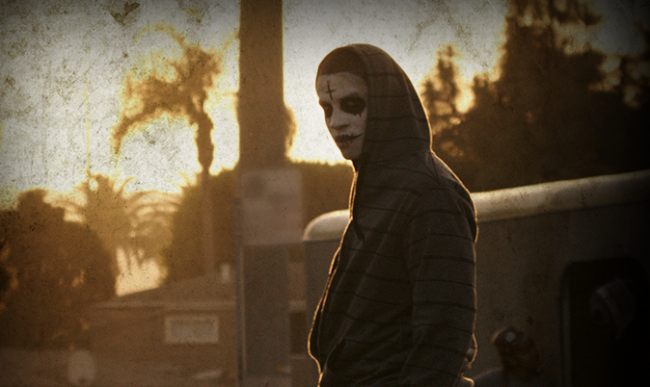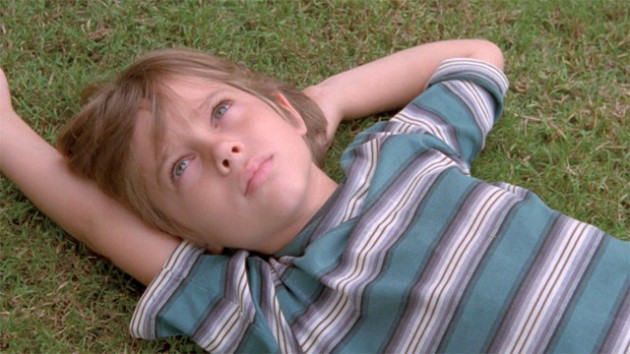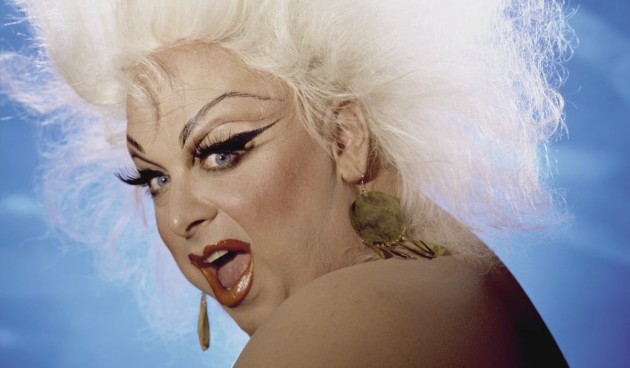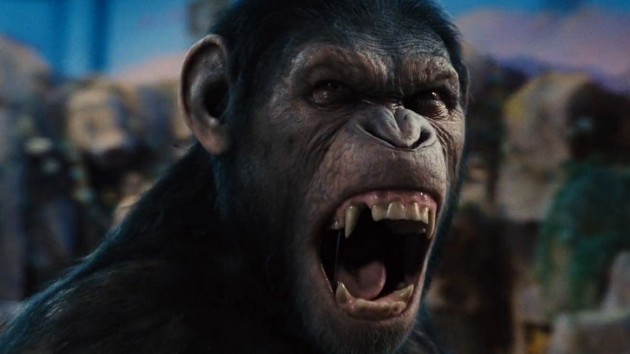After honey-voiced hardware in Her, a blank-faced alien stalker in Under Her Skin and a lycra-skinned super spy in Captain America: Winter Soldier, Scarlett Johansson continues her trend of playing characters who are Not Like Us. In Lucy she is the titular miniskirt-hugging party girl, who gets kidnapped by scowling Koreans and ingests a super-drug that transforms her into a reality-bending superwoman. It’s also another in a long line of unconventional and unstable heroines from Parisian writer-director Buc Lesson, who gained success with the memorably offbeat action of Nikita, Leon: The Professional and The Fifth Element, as well as spearheading the Liam Neeson renaissance with the gruff, workmanlike Taken series. Lucy is a jumbled…
-
-
As cut-throat a business as Hollywood may be, it’s inevitably a comedown from the horrible intensities of life in a warzone. The visually diverting but meandering The Congress is Ari Folman’s follow-up to 2009’s celebrated Waltz With Bashir, an animated documentary about former soldier Folman’s experiences during the 1982 Israel-Lebanon conflict. The Congress, inspired by Solaris author Stanislaw Lem’s 1971 science fiction novel The Futurological Congress, is an animated/live action blend which riffs on the movie industry’s superficial youth culture and delivers familiar dystopic warnings about society’s obsession with fantastical inoculations against the grim truths of real life. Robin Wright…
-
Soon into Hector and the Search for Happiness, the baffling new leading man vehicle for Simon Pegg from director Peter Chelsom (The Hannah Montana Movie), I realised why the ‘dramedic’ inertia felt so familiar. Hector has much in common with last year’s The Secret Life of Walter Mitty, a Ben Stiller film which was remarkable for recreating perfectly in cinematic form the polished emptiness of a high-end credit card commercial. Both are adaptations of a literary work (here, a popular 2002 novel by Francois Lelord), both use a well-known comic actor for a slightly straighter role, and both are about…
-
It seemed certain that somebody would let the cat out of the bag. A tongue would slip and the secret would surely be out. The mystery surrounding the location of the Ceithleann Island Theatre Company’s performances of Samuel Beckett’s Catastrophe was an imaginative programming touch of the Happy Days Enniskillen International Beckett Festival and a great publicity generator. Despite two performances every day bar one throughout the marathon eleven-day festival, nobody spilled the beans. On this day, the bus routinely picks up about fifty people from Enniskillen Castle and heads out into the wilds of the Fermanagh countryside – destination…
-
Guardians of the Galaxy, Marvel’s big summer movie, is a hot-blooded, swaggering space-opera blockbuster and a finely-judged exercise in controlled chaos. On the one hand, it’s another big-budget, aggressively promoted film from the production factory of Marvel Studios, which has achieved unprecedented box-office success through shrewd creative decisions and a tight-fisted promotion of a ‘house style’ across their properties. On the other hand, they chose as writer-director (with co-writer Nicole Perlman) James Gunn, whose CV includes Super, in which a psychotic Rainn Wilson dresses as a superhero and runs around smashing people’s faces in with a wrench, and Tromeo and…
-
For some, purgatory might well be a dawn rise to catch a 7am boat on Lough Erne, one that ferries you to an uninhabited island for a reading of Samuel Beckett’s lesser known work. Lough Erne was an ancient pathway for pilgrims from the Shannon heading to the monastery of Devonish and other church sites. But purgatory this is not, for the pilgrims this fresh, sunny Fermanagh morning are all Beckettphiles. The Purgatorio Island Readings have been a constant feature of the first three editions of the Happy Days Eniskillen International Beckett Festival, and hugely popular with attendees as well…
-
2011’s The Purge, written and directed by relatively green film-maker James DeMonaco, was a concept in search of a movie. The ropey home invasion flick was built around an irresistibly trashy hook: in less than a decade from now, America is a sort of Tea Party NRA wonderland where, for one night a year, violent crime is legal. Murder is not just allowed, but promoted as a civil duty, all the name of spiritual self-renewal. It keeps the crime and population numbers down and the welfare rolls under control (dead people don’t claim the dole). The low-budget but decent-grossing film…
-
Richard Linklater’s Boyhood is both an aesthetic and logistical triumph. That it exists at all is a victory of sorts, considering the (much-hyped) eccentricities of its production. The film is an impressionistic time-lapse of human development, charting the growth of a young Texan boy from primary-school to college age and the evolution of his surrounding family. To achieve an honest chronicle of this temporal stutter effect, Linklater returned to the small troupe of actors every year or so for eleven years to shoot a handful of scenes, guessing ahead and developing the narrative on the fly. In a neat folding…
-
Prolific filmmaker Jeffrey Schwarz turns his attention to the life and career of drag artist Divine, the cinematic muse of John Waters’ signature films. Divine didn’t invent the idea of being a drag queen, but she did reinvent it, challenging expectations, boundaries, society’s idea of ‘beauty’ and just plain decency and taste, and she did it like nobody else before. As Waters quips in the film, “Divine took it to another level, a level of anarchy”. The film begins with perhaps the crowning moment of Divine and John Waters’ long professional partnership – the premiere of Hairspray in 1988 –…
-
The first of this Planet of the Apes trilogy, 2011’s Rise of the Planet of the Apes, benefited enormously from the goodwill produced by exceeded expectations. The original series of films, based on Pierre Boulle’s 1963 sci-fi novel, existed in the public mind primarily as a vague collection of B-movie twists and lines of dialogue, ripe for sly parody. The first attempt at a modern remake, Tim Burton’s 2001 film, was muddled and saddled with an obtuse twist ending. There was room to go further. Rise, in which James Franco’s scientist raises the hyper-intelligent ape named Caesar and unwittingly develops…

